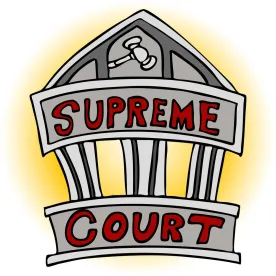Last week, the Supreme Court accepted an invitation to weigh in on the hotly contested issue of forum shopping. What the Court decides next could dramatically impact patent litigation throughout the nation.
Under judicial interpretations of the venue statutes that have been in effect for the past 25 years, a corporate defendant accused of patent infringement may be sued in any venue where that defendant may be subject to personal jurisdiction. In recent years, patent defendants have raised concerns about forum shopping by patent holders, and about overreliance on a few specific jurisdictions widely regarded as friendly to patentees. In 2015, for example, approximately 44% of patent cases litigated in the U.S. were filed in the Eastern District of Texas. One reason the Eastern District has become a favored jurisdiction for patent owners is because the court has implemented local patent rules designed to streamline cases and move them forward in an expeditious manner.
Congress has considered so-called Patent Reform legislation over the past few years to address the venue issue and other concerns raised by corporate defendants, but has failed to pass any legislation.
In last week's significant development, the Supreme Court granted T.C. Heartland's petition for certiorari. T.C. Heartland has asked: "Whether 28 U.S.C. § 1400(b) is the sole and exclusive provision governing venue in patent infringement actions and is not to be supplemented by 28 U.S.C. § 1391(c)." If the Supreme Court rules in favor of the petitioner and holds that § 1400 (b) is the sole and exclusive provision governing venue in patent infringement actions, then venue for patent cases in the U.S. will be limited to courts located "where the defendant resides, or where the defendant has committed acts of infringement and has a regular and established place of business."
Such a ruling could result in a major redistribution of patent cases throughout venues in the U.S. and put an end to the disproportionate number of patent cases filed in the limited few venues favored by patent owners, such as the Eastern District of Texas. Given the large number of companies incorporated in Delaware, however, a favorable result for the petitioner in this case may cause the vast majority of patent cases to be filed in that venue since a corporation resides in the state in which it is incorporated. Additionally, a decision in favor of the petitioner will also likely lead to litigation over the meaning of the phrase "a regular and established place of business" in § 1400(b).




 />i
/>i

